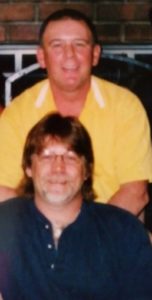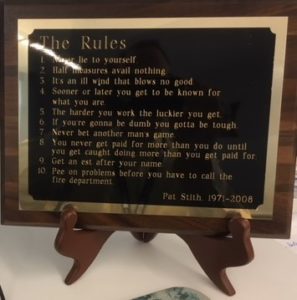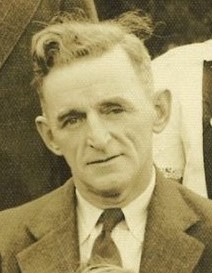On this trip to Snowbird, our hideaway in the mountains of North Carolina, Brother Pop and I were alone, headed for the cabin in his Ford Ranger pickup.
He had tried several times to get his truck to go into four-wheel drive but it just wouldn’t go. That was OK at first. But when we got to Big Rock, a little over half a mile from the cabin, he should have just parked it. It had been raining some and when that hill got the least bit wet it was so slick you had to have a four-wheel drive. That’s all there was to it.
But Pop was determined to drive his truck to the cabin, so he tried again and again to get up the hill. And the more he tried, the madder he got. His tires were smoking, and so was he. I got out, away from his truck, away from him.
Pop kept on trying. He floor-boarded it. His tires were screaming. I just about couldn’t see his truck anymore, hidden in a puff of blue smoke coming off his rear tires.

Finally, finally, he gave up and we went on the cabin riding double on an ATV. Pop didn’t like leaving his truck at Big Rock, not one bit. He took it personally . He said when his boys, Chuck and Mike, got there that truck was coming up the hill. He made it sound like they were going to beat his truck senseless with a tire tool and drag it up the hill if they had to.
His sons and a couple friends got there the next day and ran into one of my sons, Mark, on the way up. Mark is the one who got in the Pop’s truck and drove it up the hill to the dam, just below the cabin. Not taking anything away from Mark, but the road had pretty much dried out.
Lucky for Mark he stopped at the dam and got out to check out the pond and Mike got behind the wheel, only about 50 yards and one enormous mud hole from the cabin.
He didn’t make it.
Back and forth Mike drove that truck through that mud hole. He would drive it up the hill, guys pushing, tires spinning, slinging mud everywhere, almost there but not quite. And when the truck could go no further it would slide backwards, back into that mud hole.
On one of those slides back down Mike opened the driver’s door so he could stick his head out and see better. But he was too close to a tree and when the truck slid by the tree it caught the driver’s door and bent it backwards.
Bummer!
Anyway, they finally got the truck out of the mud and up that last little hill and Mike parked it at the cabin. A couple of them pushed on driver’s door, bent it back around, until they finally got it to shut. While they worked to close to door Chuck told me one of their family rules, a rule that he said applied to situations like that.
What’s the rule? I asked.
“If you’re gonna be dumb, you gotta be tough,” Chuck said.

Here are my Top Ten.
- Never lie to yourself.
- Half measures avail nothing.
- It’s an ill wind that blows no good.
- Sooner or later you get to be known for what you are.
- The harder you work the luckier you get.*
- If you’re gonna be dumb, you’ve got to be tough.
- Never bet another man’s game.*
- You never get paid for more than you do until you get caught doing more than you get paid for.*
- Get an “est” after your name.*
- Pee on problems before you have to call the fire department.*
*These were Dad’s rules
Postscript: Was Pop mad about that door? Not at all. He wanted his truck on top of the hill, Mike put it there, and that’s all that mattered.
Coming Monday: Payback
